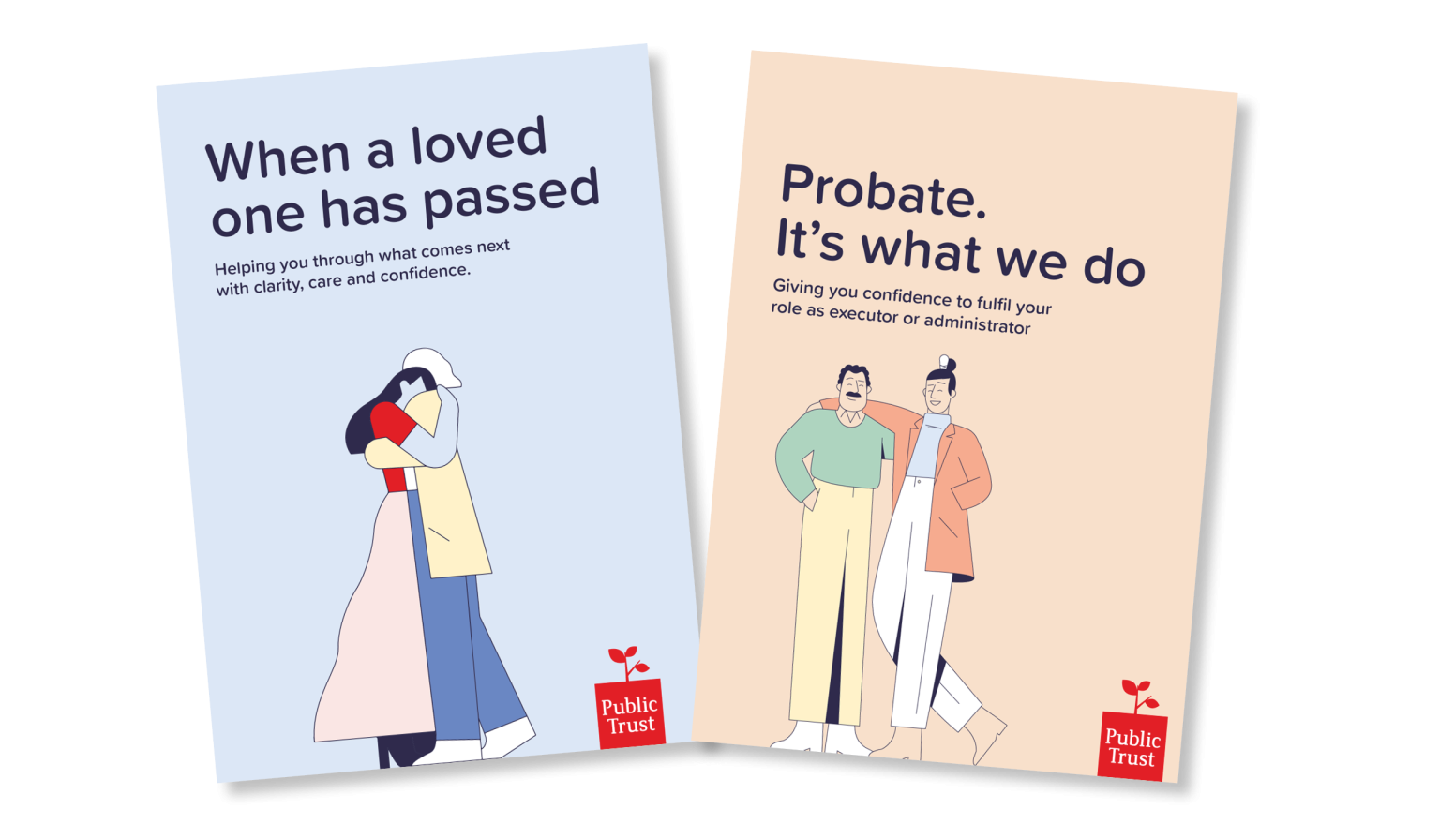
Estate administration when Public Trust is named executor
Losing someone is hard. There’s a lot to take in and sorting out their estate can feel overwhelming. If Public Trust has been named executor in the will, we take care of the legal and practical steps to settle the estate – so you don’t have to carry the burden alone.
Understanding estate administration
This is the process of managing everything your loved one owned or owed when they passed away—assets, debts, and final wishes. If the estate is worth less than $40,000 and doesn’t include property, their next of kin can usually handle it. For anything larger, the law requires formal administration, which often involves probate or letters of administration (LOA).
What is probate?
Probate is the legal step that confirms a will is valid and gives the executor authority to act. Without probate, banks, insurers, and other institutions won’t release estate assets. We apply to the High Court for a Grant of Probate as part of our role as executor.
If there’s no will, or no one is willing to act as administrator, you’ll need Letters of Administration instead. This process gives someone the legal authority to manage the estate under the Administration Act 1969. Public Trust can help fulfil this role if you need assistance.
If you’ve been named the executor, we’re also here to help. Learn more about applying for probate here.

What you can expect from us
If Public Trust is named as the executor, we take care of the formal administration, including:
Applying for probate,
Managing the estate’s assets and debts,
Finalising tax,
Working with beneficiaries,
Finalising accounts,
Distributing the estate to the people named in the will,
Accounting to the beneficiaries.
Here's how it works
We aim to make the process straightforward and stress-free. We’ll keep you informed and involved throughout, and we’re here to answer questions at any stage.
How long does it take?
Estate administration can take several months. Most estates are settled within 9-12 months, but complex cases and those with life interests may take longer.
What does it cost
Our fees are based on the work we do, not the value of the estate. A simple estate will cost less to manage than a complex one. An estate may be more complex if there’s:
Many beneficiaries, or some are hard to locate,
Property to sell,
Overseas assets, businesses or multiple accounts,
Legal issues to resolve,
Family differences or complex dynamics
At the start, we’ll give you a clear plan outlining the steps we’ll take, and an estimate of the time and costs involved.
View our price list here to learn more about our fees and charges.
Executor responsibilities made easy with Public Trust
Your will needs an executor—someone you trust to make sure your wishes are carried out. It’s an important role that can be time-consuming, complex, and comes with legal responsibilities. For over 150 years, Public Trust has specialised in helping New Zealanders navigate this process with confidence and care.
Why choose Public Trust as your executor?

Immediate access to funds: We can call in some assets straight after death, so urgent bills like funeral costs and insurance can be paid without waiting for Probate—protecting property and easing financial stress for your family.
Faster administration for smaller estates: If the estate is under $120,000, we can file a simpler Probate application, speeding things up and lowering court costs from $269 to just $40.
Fair and capped charges: Our fees are based on the work we do, not a percentage of the estate. We charge a combination of fixed fees for the standard work we complete for all estates and hourly rates for additional work.
Access to discounted services: We pass on savings from trusted third parties like real estate agents and property clearers.
Choosing Public Trust means an experienced, independent specialist will manage everything, easing the burden on your loved ones and ensuring your wishes are honoured. To learn more about choosing an executor, click here.

Find a booklet easier to navigate?
These booklets are designed to help you understand estate administration, probate and letters of administration step by step.
Still have questions?
Explore our Help and Resources section for answers to the most common questions, plus practical guides to make things easier.
Ready to get started?
Write your will online today for total peace of mind. Need help? Our experts are only a couple of clicks away.